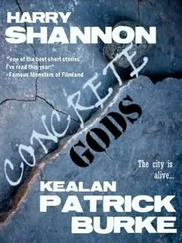“None of it. It’s junk. I sell parts off it.”
“When is the last time you saw Hugo Cistranos, Ouzel?”
“I cain’t say that name rings bells.”
Hackberry laid Pam Tibbs’s metal baton on the hood of the car. It rolled off, bouncing on the bumper before it struck the dirt with a pinging sound. He picked it up and reset it on the hood, then grabbed it when it rolled again, resetting it until it balanced, the tiny scratches showing like cats’ whiskers in the paint. He watched the baton contemplatively and moved it once more, pushing it audibly across the hood’s surface. “A couple of young people were almost killed yesterday. You sicced the shooter on them. Now you’re on your way to your church with your grandchildren. You’re a special kind of fellow, Ouzel.” Hackberry spun the baton on the car hood the way one might spin a bottle. “What do you think we ought to do about that?”
Ouzel’s eyes flicked back and forth from the baton to Hackberry’s face. “About what?” he said.
“I’m going to bring a forensic team out here. They’re going to examine every grader and dozer and front-end loader on the place. They’ll take soil samples from the blades and buckets and treads and see if they match the soil behind the church at Chapala Crossing. If your equipment was used in a mass burial, the DNA from the dead will still be on the metal. That will make you an accessory to a mass murder. If you don’t ride the needle, you’ll go down for the rest of your life. I’m talking about Huntsville, Ouzel. Do you understand what kind of place Huntsville is?”
“I didn’t know anything about those Asian women till I saw it on TV.”
“Who used your equipment?”
“I don’t control what happens here. Sometimes I see lights in the dark at the south end of my property. Maybe somebody put one of the dozers on a flatbed and took it away. I kept the blinds shut. In the morning it was back. Other people have keys to everything I own here.”
“Which people?”
“They’re in Mexico. Maybe a couple come from Arizona. They don’t tell me anything. After the dozer was back, some guys came to see me.” Ouzel touched his wrist and the back of his left hand, a sorrowful light swimming into his eyes. “They-”
“They what?”
“Walked me out to my shed and put my hand in my own vise.”
“Was Hugo Cistranos one of them?”
“I don’t know his last name. But the first name was Hugo.”
“Who did you call about my young friends?”
“All I got is a phone number. I don’t have the name that goes with the number. When something happens, when I see something that’s important, I’m supposed to call that number. Sometimes Hugo answers. Sometimes a woman. Sometimes other guys.”
“Give me the number.”
Ouzel took a ballpoint pen from his pocket and a piece of paper from his wallet, his hands shaking. He started to write on top of his car hood but instead propped one foot on the bumper and smoothed the paper on his leg and wrote out the number there so he would not risk damaging the finish on his car.
“When did you last call this number?”
“Friday.”
“When you saw Vikki Gaddis and Pete Flores?”
“I was at my brother’s filling station. They were riding in Danny Boy Lorca’s truck. They came in for gas.” Ouzel’s eyes wandered to the baton. “Can you take that off my car?”
“Do you have any idea at all of the suffering you’re party to?”
“I never made anybody suffer. I just tried to support my family. You think I want these animals running my life? I’m sorry for those women who died. But tell me this: They didn’t know what happens when you become a prostitute and have yourself smuggled into somebody else’s country? How about what they did to my hand? How about the trouble I’m in? I just wanted to take my grandkids to church this morning.”
Hackberry had to wait a long time before he replied. “Is there anything else you want to tell me, Ouzel?”
“I get immunity of some kind, right?”
“I’m not sure you’ve really given me anything. Your memory comes and goes, and a lot of what you say is incomprehensible. I also think for every true statement you make, you surround it with five lies.”
“How about this? The one they call Preacher. You know that name?”
“What about him?”
“He was here.”
“When?”
“Yesterday. He was looking for the guy named Hugo. I gave him that phone number just like I did you. It belongs to a resort or something. In the background I’ve heard people talking about shooting cougars and African animals, the kind that got those twisted horns on their heads. I gave it to Preacher, and he looked at it and said, ‘So that’s where the little fellow is.’ If you’re gonna bust me, don’t cuff me in front of the kids. I’ll get in the cruiser on my own.”
Hackberry picked up the baton from the car hood and let it hang from his right hand. It felt heavy and light at the same time. He could feel the comfortable solid warmth of the metal in his palm and the blood throbbing in his wrist. In his mind’s eye, he could see images of things breaking-glass and chrome molding and light filaments.
“Sheriff?” Ouzel said. “You won’t let the kids see me in cuffs, huh?”
“Get out of my sight,” Hackberry said.
ON THE WAY back to the department, with Pam Tibbs behind the wheel, the weather started to blow. Directly to the north, giant yellow clouds were rising toward the top of the sky, dimming the mesas and hills and farmhouses in the same way a fine yellow mist would. Hackberry rolled down his window and stuck his hand into the wind stream. The temperature had dropped at least ten degrees and was threaded with flecks of rain that struck his palm like sand crystals.
“When I was about twelve years old and we were living in Victoria, we had a downpour on a sunny day that actually rained fish in the streets,” he said to Pam.
“Fish?” she said.
“That’s a fact. I didn’t make it up. There were baitfish in the gutters. My father thought a funnel cloud probably picked up a bunch of water from a lake or the Gulf and dropped it on our heads.”
“Why are you thinking about that now?”
“No reason. It was just a good time to be around, even though those were the war years.”
She removed her sunglasses and studied the side of his face. “You’re acting a little strange this morning.”
“Better keep your eyes on the road,” he said.
“What do you want to do with that phone number Ouzel gave you?”
“Find out who it belongs to, then find out everything you can about the location.”
“What are you planning to do, Hack?”
“I’m not big on seeing around corners,” he replied. He heard her drum her fingers on the steering wheel.
At the office, Maydeen Stoltz told him that Danny Boy Lorca had been picked up for public drunkenness and was sleeping it off in a holding cell upstairs. “Why didn’t somebody just drive him home?” Hackberry asked.
“He was flailing his arms around in the middle of the street,” she replied. “The Greyhound almost ran over him.”
Hackberry climbed the spiral steel stairs at the back of the building and walked to the cell at the far end of the corridor where overnight drunks were kept until they could be kicked out in the morning, usually without charges. Danny Boy was asleep on the concrete floor, his mouth and nostrils a flytrap, his hair stained with ash, his whole body auraed with the stink of booze and tobacco.
Hackberry squatted down on one haunch, gripping a steel bar for balance, a bright tentacle of light arching along his spinal cord, wrapping around his buttocks and thighs. “How you doing, partner?” he said.
Читать дальше












